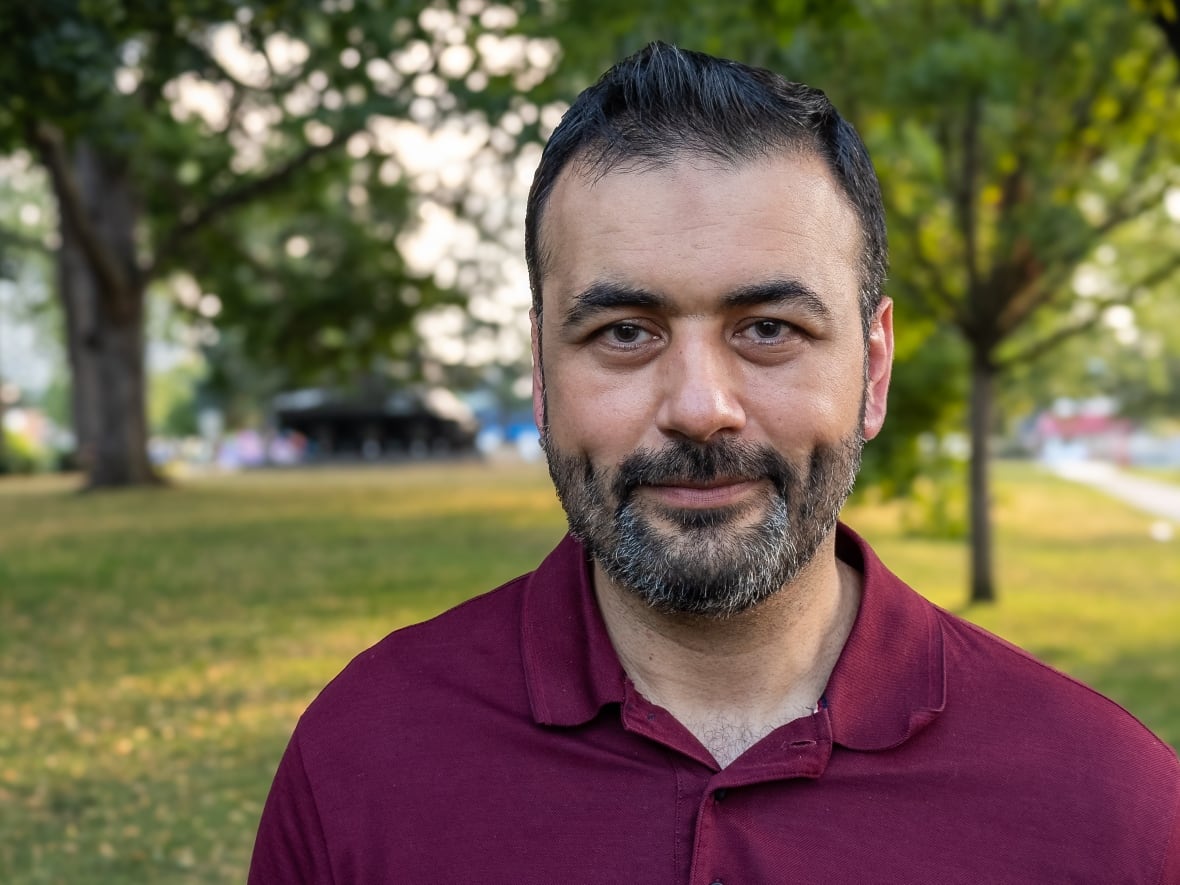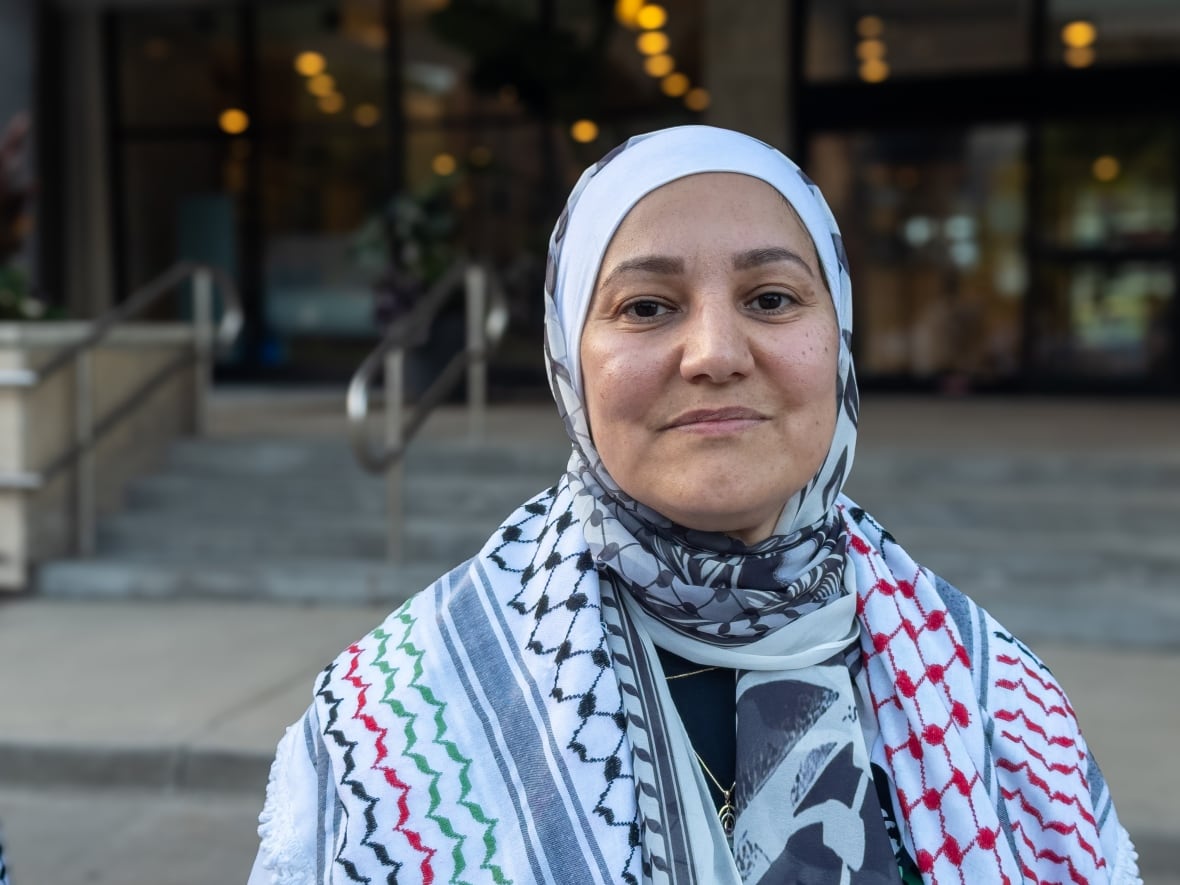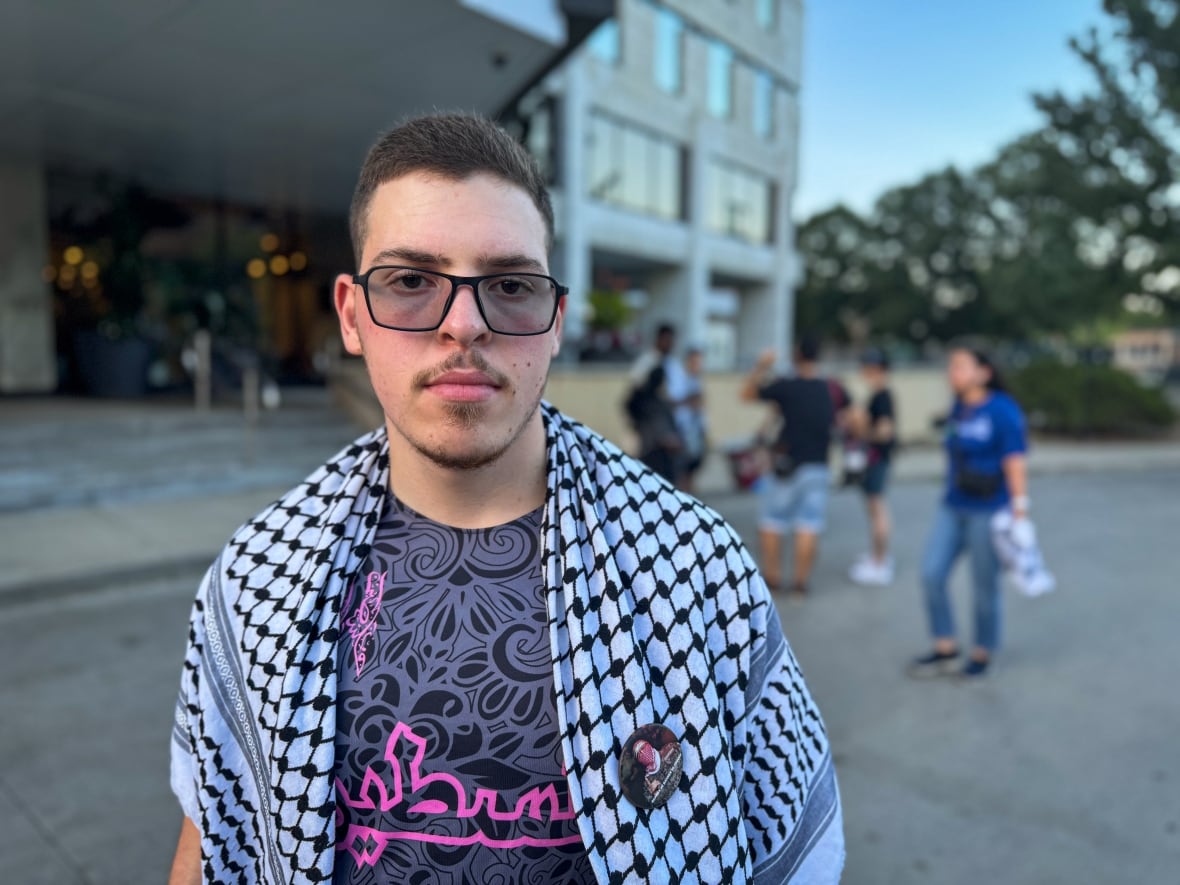Londoners protest Israeli military escalation and killing of Palestinian journalists

Londoners marched through the downtown core on Monday in protest of Israel's escalating military offensive in Gaza, and the deaths of six Palestinian journalists from an Israeli airstrike over the weekend.
Demonstrators said they were also protesting Canada's failure to help Palestinian refugees and fully condemn the Israeli government's military actions, including its role in the worsening humanitarian crisis.
Among them was Nabil Sultan, who described the last year-and-a-half as being "the most traumatic period of my life," with many family members being killed in Israeli military strikes.
"My first cousin's entire family — her, her husband, her four children, and her father-in-law — were killed in their home," he said.
"My family (is) currently in very difficult conditions. They're in tents in Gaza City. They're struggling to find water, and find bread and rice and just basic foods for survival."
It's Gaza City that the Israeli government says it intends to take control of, a plan that has received fierce criticism at home and abroad.
The foreign ministers of Canada, Austria, Australia, Germany, Italy, New Zealand, Norway and the United Kingdom said Saturday that the plan would worsen the humanitarian situation, endanger remaining Israeli hostages, and further the mass displacement of civilians.
On Sunday, Israeli Prime Minister Benjamin Netanyahu defended the plan, saying Israel had "no choice but to finish the job and complete the defeat of Hamas," and called reports about the dire conditions in Gaza a "global campaign of lies."

Sultan, a nephrologist with London Health Sciences Centre, tried to visit Gaza in September and participate in a medical mission, but was denied entry by Israel while crossing from Jordan, he said.
"When I asked for the reason why I was denied entry, what I was told was that I had Palestinian origins," he said. He added there is little medicine in Gaza, and few medical facilities still operating, and accused Israel of committing a genocide.
"It's a complete sense of helplessness on my end, and a complete sense of disappointment in the Canadian government stance, that has not ... clearly called for this genocide to end."
Monday evening's demonstration began outside London city hall and at one point stopped outside the London Public Library and CBC London's offices.
The Canadian Palestinian Social Association (CPSA) said the protest was called on Monday after six Palestinian journalists, including four from Al Jazeera, were killed on Sunday in an Israeli strike on a tent near Al Shifa Hospital.
Israel's military said it targeted and killed Anas al-Sharif, alleging he had headed a Hamas militant cell, citing intelligence documents.
CBC News has not seen the documents or otherwise verified the allegations, which Al Jazeera said were baseless, calling the strike a "targeted assassination." Canada condemned the killings in a post on X.
There was no justification for the strike, said Londoner Mustafa Turk, who has several family members in Gaza.
Turk accused Israel of trying to silence Palestinian journalists. "They don't want Western media to see the truth of what people are sharing from inside Gaza."
International news organizations have been barred by Israel from covering the war inside Gaza, aside from rare guided tours.

On Sunday, Netanyahu said he had directed Israel's military to "bring in more foreign journalists."
In a statement, CPSA accused the Canadian media of whitewashing a genocide, and called on Canadian MPs to demand an immediate and unconditional ceasefire, and press for an end to the aid blockade, and "the occupation of Palestinian lands."
It also called on the government to suspend military trade and cooperation with Israel, following a recent CBC News report suggesting Canadian arms shipments are still flowing to Israel.
"There must be something that we can do. There is more for Canada to do than just to recognize Palestine as a state with conditions. Where's the arms embargo?" said Samah Al-Sabbagh, CPSA's president.
"That's not what Canada stands for. We stand for freedom, we stand for rights, and we see justice, but we can't call it out. Why? Why can't we call out this genocide?"

Prime Minister Mark Carney has said Canada intends to recognize a Palestinian state at the UN General Assembly next month, so long as Hamas has no role in governance.
On Friday, he repeated Canada's call for a ceasefire, and for the return of all Israeli hostages.
Al-Sabbagh says she has several family members who have left Gaza but who are stuck in Egypt waiting to come to Canada.
"Canada has not yet brought them over. Their application is there, we keep sending the government, but nothing is being gone. What do we do?"
The federal government says more than 1,750 people who exited Gaza had passed security screenings and had been approved to come to Canada as of July 8. More than 860 have arrived in Canada.
cbc.ca





